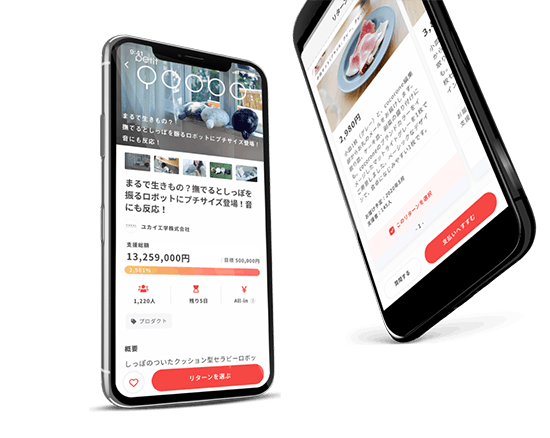
国際柔道交流に取り組むモロッコ在住の長谷川正仁先生から応援メッセージをいただきました。
後半に英訳、日本語訳があります。
After the Japanese translation, there are English and French translations.
La traduction japonaise est suivie d'une traduction anglaise et d'une traduction française.
-国際柔道交流はいつから取り組まれていますか。
大学柔道部の時、よく海外の柔道家が大学にきて稽古をしており、彼ら彼女らの世話係をしているうちに、次第に英語を覚え、友人が増えていきました。そして、彼等の柔道に対する姿勢を見て共感を覚えました。と言いますのは、単身、言葉も通じない柔道先進国に来る、勇気と情熱を彼等が持っていることへの驚きです。

大学卒業後、IJFより派遣され、モロッコの柔道代表チームのコーチをしました。その後、日本で仕事をしながら、神奈川の土曜柔道会、日本マスターズ柔道協会などで柔道をして、海外から日本を訪れる柔道家のサポートをしてきました。

数年前に定年退職して、モロッコに移住、現在、モロッコやポルトガルなどで柔道指導しながら、子供達の国際柔道交流のサポートをしています。

-なぜ国際柔道交流をサポートしているのでしょうか。
私は柔道を通じてたくさんの海外の友達ができました。よく「柔道ファミリー」という言葉を使いますが、不思議なことに一緒に柔道をすると、言葉が通じなくてもすぐに仲良くなります。

海外に出ると子供達は大きく成長します。だから、若い方にはどんどん海外に出て行ってほしいと思っています。もう少し詳しく言いますと、日本語だけだと、1億人の情報量と思考パターンですが、英語、フランス語となると、世界の半数以上の情報量と思考パターンが分かります。chatGPTでは、正しい1つの回答しか出て来ませんが、多くの人にはそれぞれの意見が有ります。柔道も同じで、精力善用、自他共栄の精神の元に、色々な柔道が有るのでは無いでしょうか。

-このモンゴルに畳を贈るプロジェクトに期待することを教えてください。
モンゴルの青少年がもっと柔道できるようになることはもとより、日本とモンゴルの青少年の柔道交流、さらに様々な国々との国際柔道交流が進んでいくことです。政府同士は、色々懸案事項も有るでしょうが、私達柔道家、モンゴル、日本または、多くの国の人達(柔道家)はどんな時でも、会話の出来るパートナーとして存在する事ができる様になって欲しいのです。

また、国際柔道交流の魅力はまだまだ知られていないので、多くの人々がクラウドファンディングをきっかけに国際柔道交流に関心を寄せてくださることが本当にうれしいです。
-最後に一言お願いいたします。
いま、モロッコのカサブランカに住んでおり、モロッコの少年柔道クラブ指導をしたり、モロッコの柔道指導者向けの講習をおこなってしています。また、モロッコはヨーロッパのすぐそばにあり、飛行機で1時間程度でポルトガルに行くことができるのですが、ポルトガルでも指導者向けに柔道講習を行ったりしています。

日本で柔道をしている若者のみなさん、モンゴルだけでなく、モロッコ、ポルトガルでも柔道ができますので、海外に出て柔道をしてみたいという方、ぜひjudo3.0に連絡ください。連絡をお待ちしております。

Enlgish version
We received a message of support from Mr. Masahito Hasegawa, a Moroccan resident who is involved in international judo exchange.
-When did you start international judo exchange?
When I was a member of the university judo club, judoka from overseas often came to the university to train, and as I was their caretaker, I gradually learned English and made friends with them. As I became their caretaker, I gradually learned English and made friends with them. I was surprised that they had the courage and passion to come alone to a country where they did not speak the language.
After graduating from university, I was dispatched by the IJF to coach the Moroccan national judo team. Later, while working in Japan, I supported judoka visiting Japan from abroad by doing judo with the Saturday Judo Club in Kanagawa and the Japan Masters Judo Association. I retired a few years ago and moved to Morocco, where I am currently teaching judo in Morocco and Portugal, and supporting international judo exchange for children.
-Why do you support international judo exchange?
I have made many international friends through judo. We often use the term "Judo family," and strangely enough, when we do Judo together, we quickly become friends even if we don't speak the same language. Children grow up a lot when they go abroad. That is why I want young people to go abroad more and more. To be more precise, if you use only Japanese, you have the information and thought patterns of 100 million people, but if you use English and French, you have the information and thought patterns of more than half of the world's population. Judo is the same, and there are various types of Judo based on the spirit of vigorous use of energy and co-prosperity for oneself and others.
-What are your expectations for this project to send tatami mats to Mongolia?
I hope that Mongolian youths will be able to practice judo more, and that judo exchange between Japanese and Mongolian youths, as well as international judo exchange with various other countries, will be promoted. I know that there are many concerns between governments, but I hope that we judoka, Mongolian, Japanese, and people from many other countries (judoka) can exist as partners who can talk to each other at any time.
I am also very happy that many people are interested in international judo exchange through crowdfunding, because the appeal of international judo exchange is not yet well known.
-Please give us one last comment.
I am currently living in Casablanca, Morocco, coaching Moroccan youth judo clubs and conducting training courses for Moroccan judo instructors. Morocco is very close to Europe, and it takes only one hour by plane to get to Portugal, where I also conduct judo training for instructors.
For young people who are doing judo in Japan, you can do judo not only in Mongolia but also in Morocco and Portugal, so if you want to go abroad and try judo, please contact judo3.0. We are looking forward to hearing from you.
French version
Nous avons reçu un message de bon de Masahito Hasegawa Sensei, un résident marocain qui participe aux échanges internationaux de judo.
Depuis combien de temps êtes-vous impliqué dans les échanges internationaux de judo ?
Lorsque j'étais membre du club de judo de l'université, des judokas étrangers venaient s'entraîner à l'université et, comme j'étais résponsable , j'ai progressivement appris l'anglais et je me suis lié d'amitié avec eux. J'ai ressenti de l'empathie lorsque j'ai vu leur attitude envers le judo. J'ai été surpris qu'ils aient eu le courage et la passion de venir seuls dans un pays où le judo est très développé et où ils ne parlent pas la langue.
Après avoir obtenu mon diplôme universitaire, j'ai été envoyé par la FIJ pour entraîner l'équipe nationale marocaine de judo. Plus tard, alors que je travaillais au Japon, j'ai soutenu les judokas étrangers en visite au Japon en pratiquant le judo avec le Saturday Judo Club de Kanagawa et la Japan Masters Judo Association. J'ai pris ma retraite il y a quelques années et je me suis installé au Maroc, où j'enseigne actuellement le judo au Maroc et au Portugal et je soutiens les échanges internationaux de judo pour les enfants.
Pourquoi soutenez-vous les échanges internationaux de judo ?
Le judo m'a permis de nouer de nombreuses amitiés internationales. Nous utilisons souvent le terme de "famille du judo" et, curieusement, lorsque nous pratiquons le judo ensemble, nous devenons rapidement être amis, même si nous ne parlons pas la même langue. Les enfants grandissent beaucoup lorsqu'ils partent à l'étranger. C'est pourquoi je souhaite que les jeunes partent de plus en plus à l'étranger. Pour aller plus loin, si vous n'utilisez que le japonais, vous avez les informations et les schémas de pensée de 100 millions de personnes, mais si vous utilisez l'anglais et le français, vous avez les informations et les schémas de pensée de plus de la moitié de la population mondiale. Il en va de même pour le judo, et il existe différents types de judo basés sur l'esprit de l'utilisation vigoureuse de l'énergie et de la prospérité mutuelle pour soi-même et pour les autres.
Qu'attendez-vous de ce projet d'envoi de tatamis en Mongolie ?
J'espère que les jeunes Mongols pourront pratiquer davantage le judo et que les échanges de judo entre les jeunes Japonais et les jeunes Mongols, ainsi que les échanges internationaux de judo avec divers autres pays, progresseront. Il peut y avoir de nombreux problèmes entre les gouvernements, mais j'espère que nous, judokas, mongols, japonais ou personnes (judokas) de plusieurs pays, pouvons exister en tant que partenaires qui peuvent se parler à tout moment.
En outre, l'attrait des échanges internationaux de judo n'est pas encore bien connu, c'est pourquoi je suis très heureux que de nombreuses personnes s'intéressent aux échanges internationaux de judo par le biais du financement participatif (crowdfunding).
-Un dernier mot, s'il vous plaît.
Je vis actuellement à Casablanca, au Maroc, où j'entraîne de jeunes clubs de judo marocains et où je donne des cours de formation à des instructeurs de judo marocains. De plus, le Maroc est très proche de l'Europe, et il ne faut qu'une heure d'avion pour se rendre au Portugal, où j'organise également des stages de judo pour les instructeurs portugais.
Si vous êtes un jeune qui pratique le judo au Japon, vous pouvez pratiquer le judo non seulement en Mongolie, mais aussi au Maroc et au Portugal. Si vous voulez aller à l'étranger et essayer le judo, n'hésitez pas à contacter judo3.0. Nous attendons avec impatience votre réponse.










